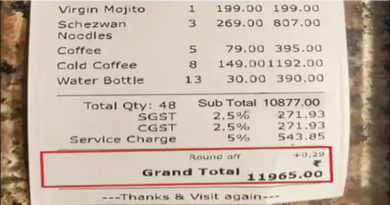UK Mobile networks banned from selling locked phones
UK mobile phone firms are to be banned from selling phones locked to their services from December 2021.
UK’s communication regulator Ofcom stated unlocking handsets could often be a complex process, and this was preventing users from switching providers at the end of their plans.
The networks have previously cited theft and fraud as main reasons to sell locked devices.
But the watchdog reported some firms had already abandoned the practice.
The major affected companies include:
- BT and its EE mobile division
- Vodafone
- Tesco Mobile
Sky, O2, Virgin and Three already only sell unlocked phones.
Ofcom’s connectivity director Selina Chadha said, “[It] will save people time, money and effort – and help them unlock better deals.”
Vodafone has already answered: “We stand ready to implement these changes when they come into effect.”
EE added: “We’ll work with Ofcom to comply with its latest guidelines.”
Lost service
It normally costs nearly £10 to get a smartphone unlocked to make it work on any network.
However, as per the study by Ofcom, about half of the users who try to do so experience issues.
These may include waiting too long to receive the code needed to begin the process, as well as then finding that the code is invalid.
The regulator told that some owners do not know their devices are locked in the first place, causing them to face a loss of service when they attempt to switch.
The ban indicates that the UK remains complaint with different European rules, but Ofcom noted that it was already looking into the issue before the EU proposed the regulations in 2018.
The local government has cleared it will comply with the European Electronic Communications Code, despite preparing to complete the Brexit transition period this year.
Broadband consultation
The unlocked handsets is one of the several new measures that telecom networks will have to follow. Others include:
- An obligation to offer communications in easy formats like Braille whenever requested. This must also be completed by December 2021.
- Providing users a suitable right to leave if changes are made to deals that they were not notified about before signing. This has to come into force by June 2022.
- A requirement that customers be given a clear summary of a contract’s key points before joining. This must complete by June 2022.
Besides that, the regulators intend to make it easier for users to switch broadband networks by December 2022.
Currently, if a customer wants to switch from one provider based on BT’s Openreach network to another – for instance from Sky to TalkTalk – all he needs to do is contact the new supplier, which makes all further steps clear.
But if they wish to switch to another broadband network – for instance from Virgin Media to BT or CityFibre – they have to handle it themselves.
Ofcom had asked the industry to build an easy process to end this discrepancy.
But once it failed to do so, officials are now planning on their own solutions, although they say they will hear the public and the companies involved first.


